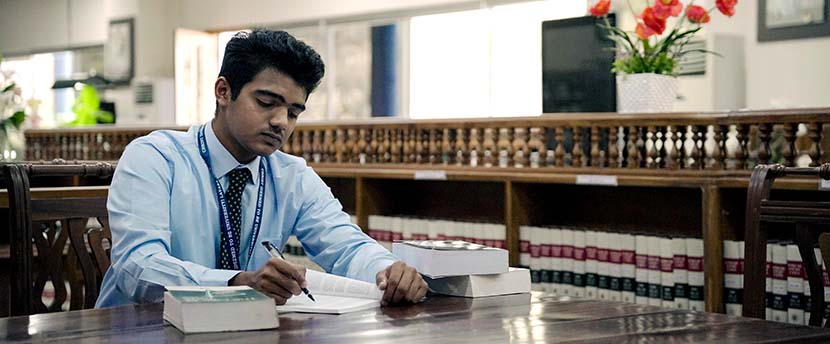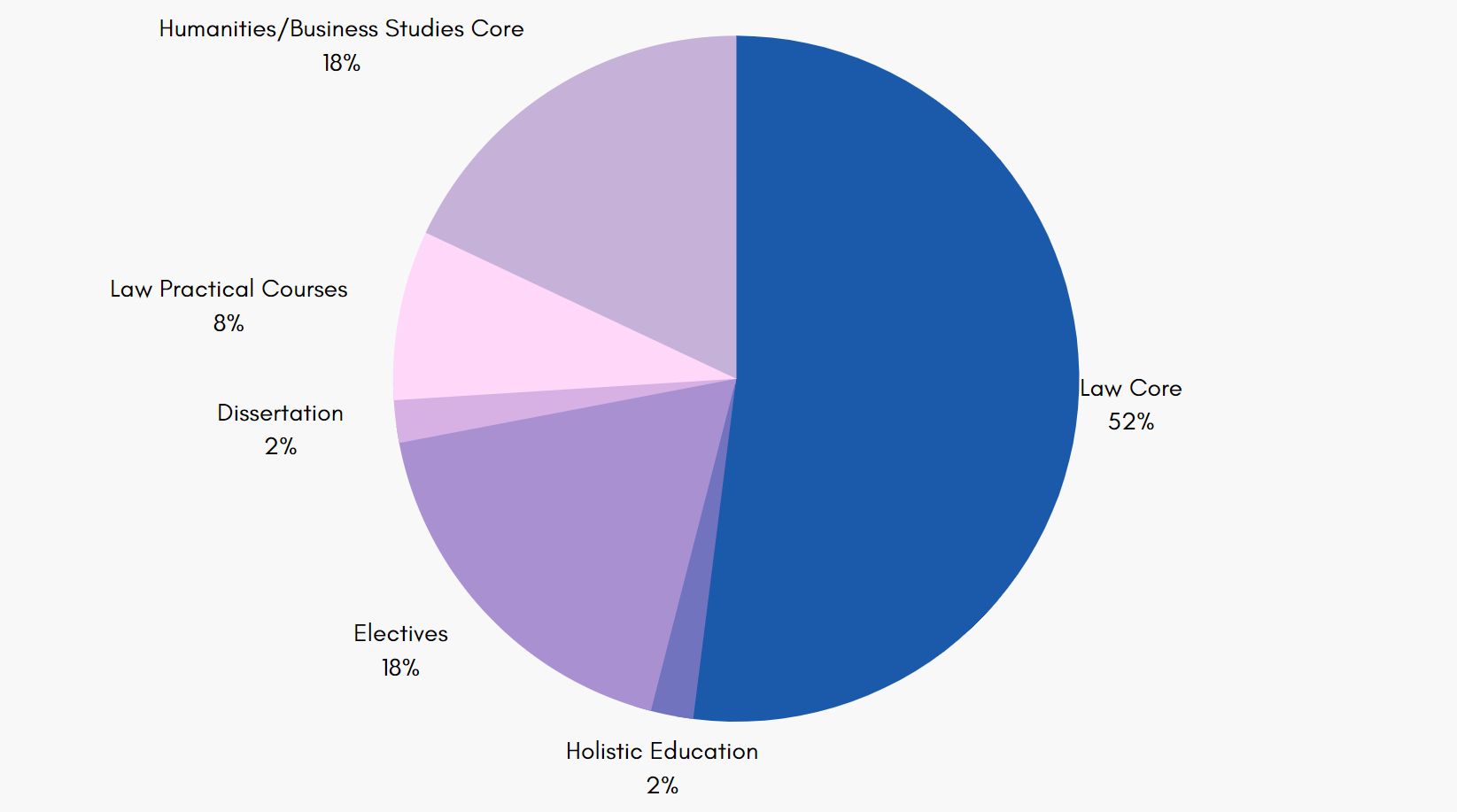PO1: ACADEMIC EXPERTISE
On successful completion of the Programme students will be able to -
1. Demonstrate a critical understanding of the key concepts in law.
2. Display knowledge in core and non-core (interdisciplinary) areas of law.
3. Evince strong understanding of the patterns of governance and the underlying reasons for the same.
PO2: CRITICAL THINKING, LEGAL REASONING AND RESEARCH SKILLS
On successful completion of the Programme students will be able to -
1. Review, present and critically evaluate qualitative and quantitative information to:
a) Develop constructive arguments, employing logical legal reasoning;
b) Apply underlying concepts, principles, and techniques of analysis, both within and outside the discipline;
c) Engage in deliberations and discussions on issues of local, regional, national and global importance.
d) Evaluate laws, as against the laws in other jurisdictions, and on the touchstone of constitutional values and the values advanced in the Sustainable development goals.
e) Make sound judgments and suggest improvements in the law, in accordance with major theories, concepts and methods of the subject(s) of study
PO3: PROFESSIONAL SKILLS
On successful completion of the Programme students will be able to demonstrate-
1. Mooting skills
a. Articulation skills in communication, clarity of thought in expression and present their viewpoints accurately and convincingly whether oral or written to members of the legal community.
b. Court manners and etiquette in their professional law practice.
c. Employ sound logical legal reasoning for advancing arguments and representing the best interests of the client in a professional and ethical manner.
2. Leadership skills through initiatives, inclusiveness, confidence and working effectively in groups.
3. Problem solving and dispute resolution skills that encourages social cohesion.
4. Drafting/ Pleading and Conveyance skills in the use of accurate legal language and formats of drafting.
5. Efficiency in the use of various tools and techniques in negotiation and vetting of contracts.
PO4: VALUES
On successful completion of the Programme students will be able to -
1. Demonstrate gender sensitivity in their actions.
2. Demonstrate environment sensitivity in their actions.
3. Reflect human values social and moral in their interactions with society.
4. Demonstrate strong commitment for constitutional values in service to the society.








.png)

 1800-123-2009
1800-123-2009